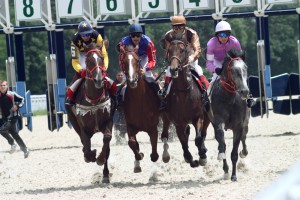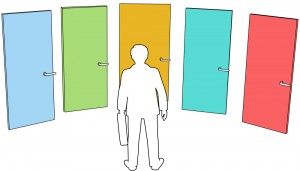In 2012, we reviewed the evidence for talking therapies to reduce drinking among people who also use other drugs. This review was published by the Cochrane collaboration and updated in November 2014. Seven months ago, Olivia Maynard, a research associate from the University of Bristol, gives a wonderful summary of the updated review.
Whilst we all know that excessive alcohol consumption is bad for our health, illicit drug users are one group for whom problem alcohol use can be especially harmful, causing serious health consequences.

- Motivational interviewing (MI): this uses a client-centered approach, where the client’s readiness to change and their motivation, is a key component of the therapy.
- Cognitive-behavioural therapy (CBT): this focuses on changing the way a client thinks and behaves. To address problem alcohol use, CBT approaches identify the triggers associated with drug use and use behavioural techniques to prevent relapse.
- Brief interventions (BI): often BIs are based on the principles of MI and include giving advice and information. However, as implied by the name, BIs tend to be shorter and so are more suitable for non-specialist facilities.
- The 12-step model: this is the approach used by Alcoholics Anonymous and operates by emphasising the powerlessness of the individual over their addiction. It then uses well-established therapeutic approaches, such as group cohesiveness and peer pressure to overcome this addiction.
Methods
- The Cochrane review included all randomised controlled trials which compared psychosocial interventions with another therapy (whether that be other psychosocial therapies (to allow for comparison between therapies), pharmacological therapies, or placebo). Participants were adult illicit drug users with concurrent problem alcohol use
- Four studies were included, involving 594 participants in total
- The effectiveness of these interventions were assessed and the authors were most interested in the impact of these therapies on alcohol use, but were also interested in their impact on illicit drug use, participants’ engagement in further treatment and differences in alcohol related harms
- The quality of the studies was also assessed

Results
- Study 1: cognitive-behavioural therapy versus the 12-step model (Carroll et al, 1998)
- Study 2: brief intervention versus treatment as usual (Feldman et al 2013)
- Study 3: group or individual motivational interviewing versus hepatitis health promotion (Nyamathi et al, 2010)
- Study 4: brief motivational intervention versus assessment only (Stein et al, 2002)

Conclusions
based on the low-quality evidence identified in this review, we cannot recommend using or ceasing psychosocial interventions for problem alcohol use in illicit drug users.
no reliable conclusions can be drawn from these data regarding the effectiveness of different types of psychosocial interventions for the target condition.

Links
– See more at: http://www.thementalelf.net/mental-health-conditions/substance-misuse/reducing-alcohol-consumption-in-illicit-drug-users-new-cochrane-review-on-psychotherapies/#sthash.nhqsnqPW.dpuf